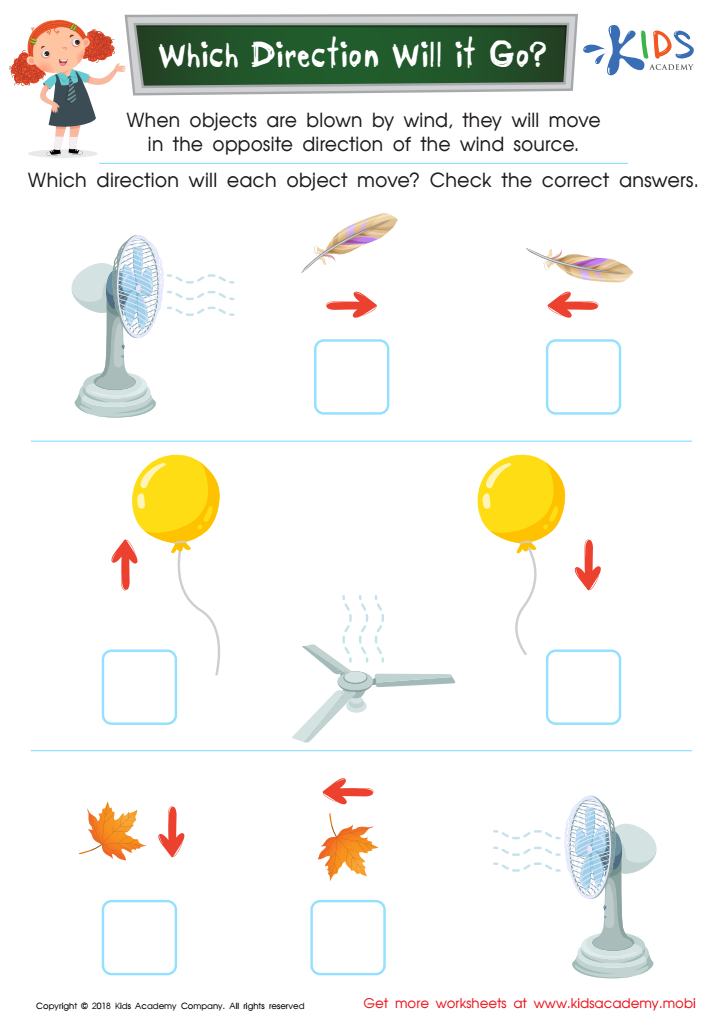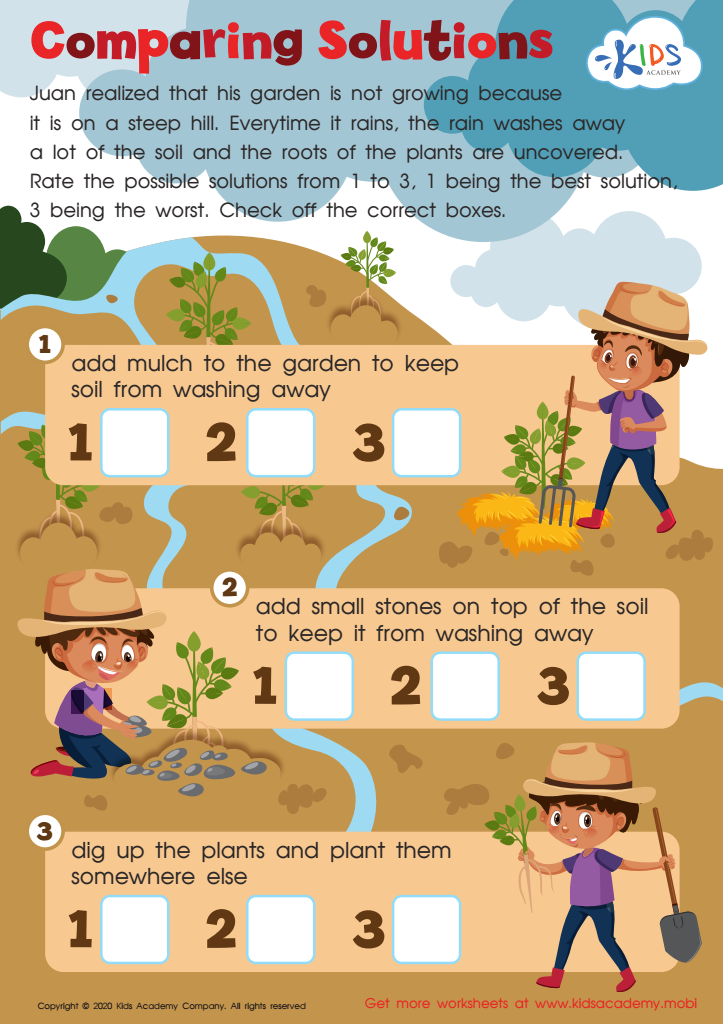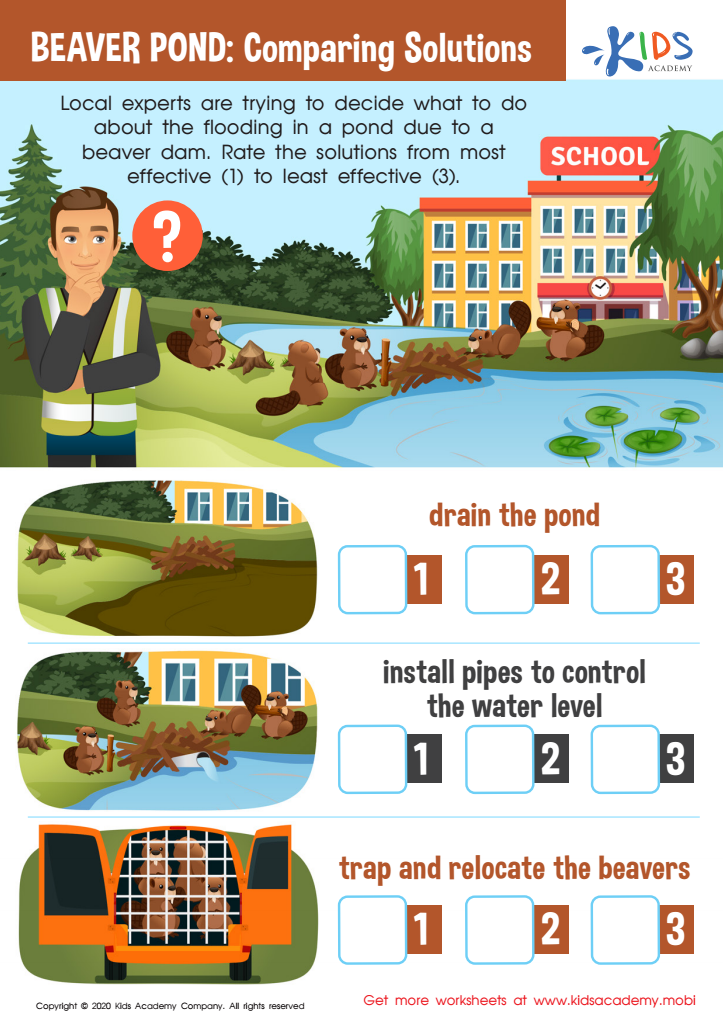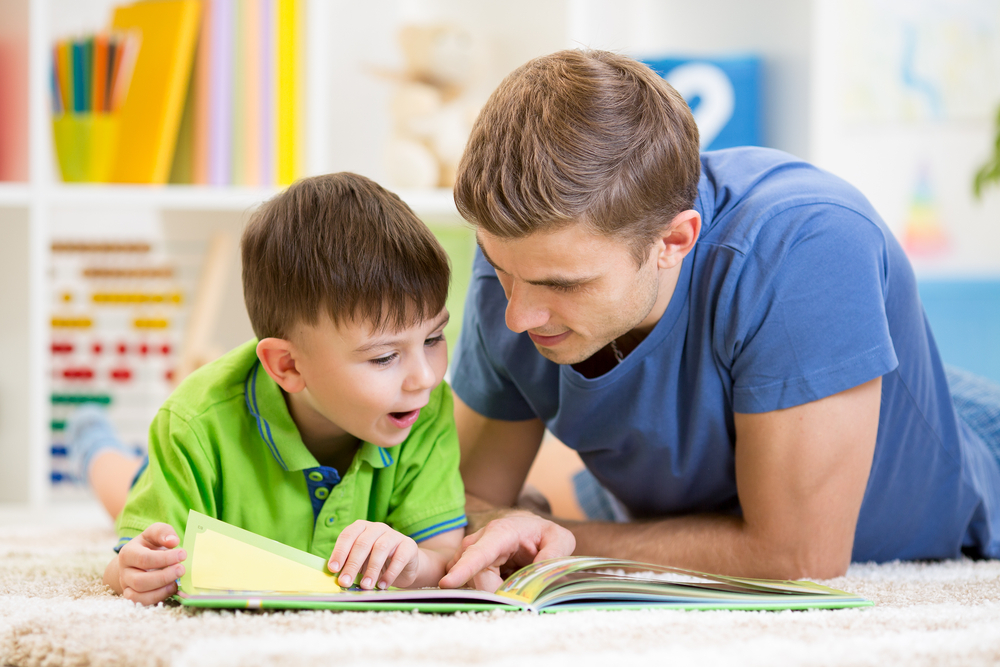Logical thinking development Science Worksheets for Ages 3-6
3 filtered results
-
From - To
Unlock the wonders of logical thinking with our Science Worksheets designed for ages 3-6! Our engaging materials foster early cognitive development through fun and educational activities. Young learners explore the basics of science while enhancing their problem-solving and reasoning skills. These worksheets are crafted to stimulate curiosity, promote hands-on learning, and build a strong foundation for future academic success. Whether distinguishing patterns, sequencing events, or completing puzzles, each task encourages critical thinking in an enjoyable way. Ideal for preschoolers and kindergarteners, our worksheets make learning an exciting adventure. Ensure your child thrives with our expertly designed resources!


Which Direction Will it Go? Worksheet


Comparing Solutions Worksheet


Beaver Pond: Comparing Solutions Worksheet
Logical thinking development is crucial for children aged 3-6 as it lays the foundation for lifelong cognitive and problem-solving skills. During these formative years, children's brains are exceptionally receptive to new information and ways of thinking. By encouraging logical thinking, parents and teachers help children learn how to reason, analyze, and make connections between ideas. This is integral not only for academic success but also for daily decision-making and social interactions.
When children grasp basic logical concepts, such as sequencing, cause and effect, and categorization, they are better prepared to tackle more complex subjects in school, like mathematics and science. These skills also promote literacy, as understanding the logical flow of stories and recognizing patterns in letters and words are essential for reading and writing.
Moreover, fostering logical thinking aids in emotional and social development. Children learn to understand different perspectives, negotiate conflicts, and develop empathy. They become better at planning and organizing their thoughts and actions, which enhances their focus and self-control.
Incorporating logical thinking exercises into early education nurtures curious, confident, and capable learners. Teachers and parents who prioritize this aspect of development equip children with the tools they need to navigate the world thoughtfully and effectively, setting them up for a lifetime of informed and open-minded decision-making.
 Assign to My Students
Assign to My Students









%20(1).jpg)









